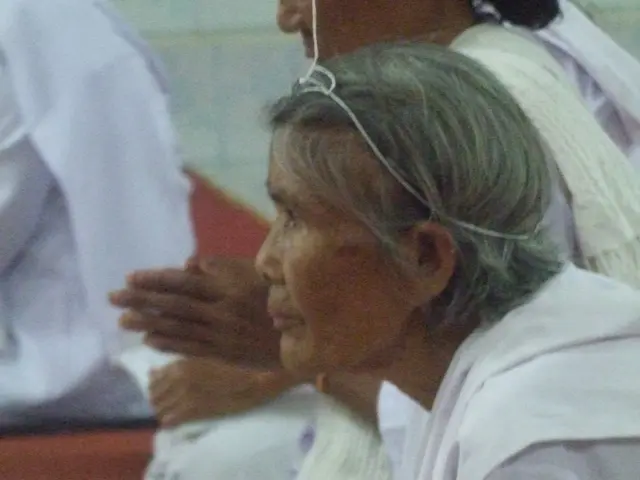Intense heatwaves pose substantial threats to health
In a recent survey conducted by the Techniker Krankenkasse (TK), it has been revealed that the Spanish population is increasingly aware of the impact of excessive heat on their daily lives and health. The survey, which ran from July 7 to 14, 2025, collected opinions from 1,274 people aged 18 and over.
The results show that 8 out of 10 citizens report a notable increase in extreme temperatures during recent summers. This rise in temperature has been associated with various health issues. People over 65 associate excessive heat with the aggravation of chronic pathologies, while young people highlight immediate symptoms such as skin irritations or general discomfort.
The most mentioned effects of excessive heat are heat strokes or fainting (84%), dehydration (83%), insomnia or fatigue (70%), nausea or dizziness (58%), worsening of chronic diseases (56%), and confusion or disorientation (52%). The most frequent reasons for seeking medical care were muscle cramps (68%), worsening of chronic diseases (60%), and heat strokes or dehydration (59%).
The survey also identified several vulnerable groups. People over 65 are considered the most vulnerable group to excessive heat (69%), followed by children under 5 (38%), pregnant women (13%), people without air conditioning or low income (10%), homeless people (19%), and those with respiratory diseases (28%). Outdoor workers are also identified as a vulnerable group (57%).
More than 90% of the population considers excessive heat to represent a serious health risk. Héctor Tejero, head of the Health and Climate Change Observatory, states that the results show a clear social awareness of the effects of excessive heat and the need to strengthen protection and awareness measures against this phenomenon.
Interestingly, 47% consider the term 'excessive heat' to convey a greater sense of danger than 'heatwave' (27%). The survey also highlighted the disparity in the use of air conditioning, with high-income homes using it more commonly (62%) compared to lower-income homes (47%).
Finally, it's worth noting that only 23% of homes in Spain have adequate thermal insulation against excessive heat. The Ministry of Health, recognising the severity of the issue, has commissioned this survey to gauge the perception of the impact of excessive heat on daily life and the health of the population. The results underscore the need for further action to protect vulnerable groups and raise awareness about the risks associated with excessive heat.
Read also:
- Accident alerts issued for nosiest Alexandria crossroads due to 318 brush-with-death incidents
- Health professional vaccination rates for the flu in 2024 hit a seven-year low
- European Commission introduces communication on strategies for protecting democracy and fundamental rights online
- Exploring the Health Benefits of Consuming Plum Liqueur Infused with Oats and Almonds








